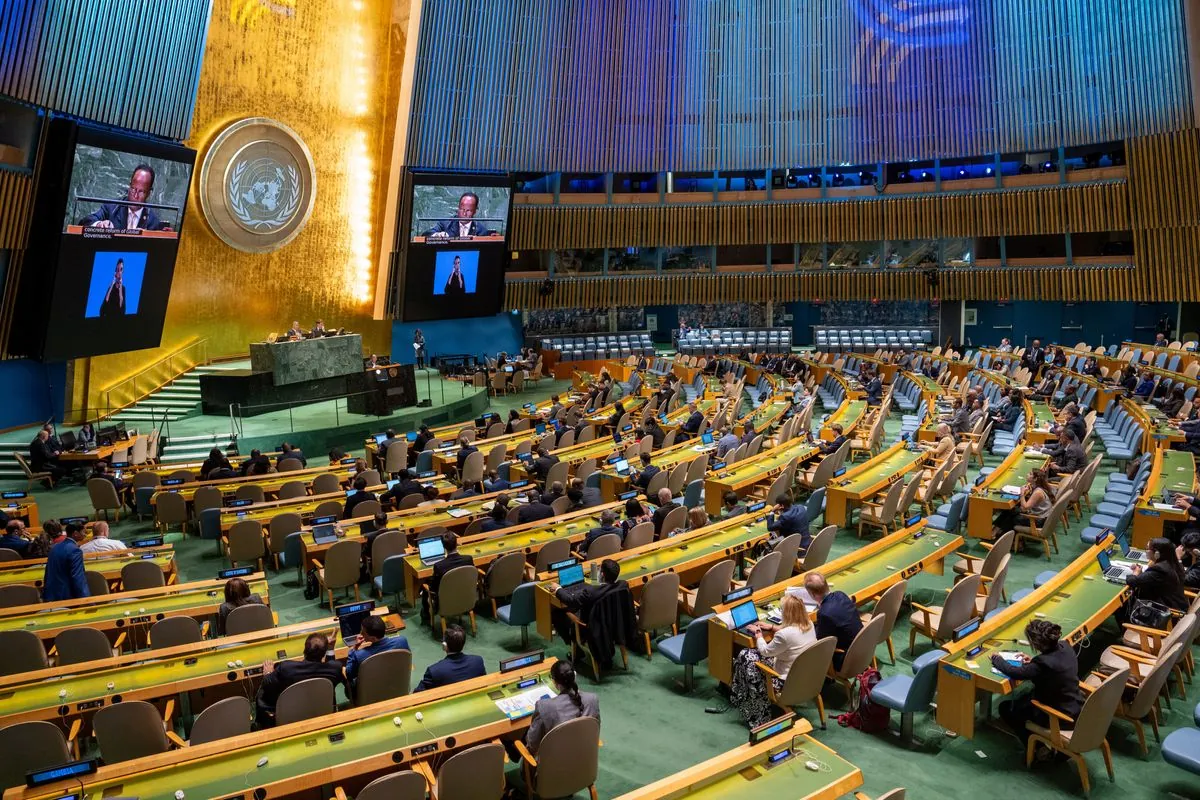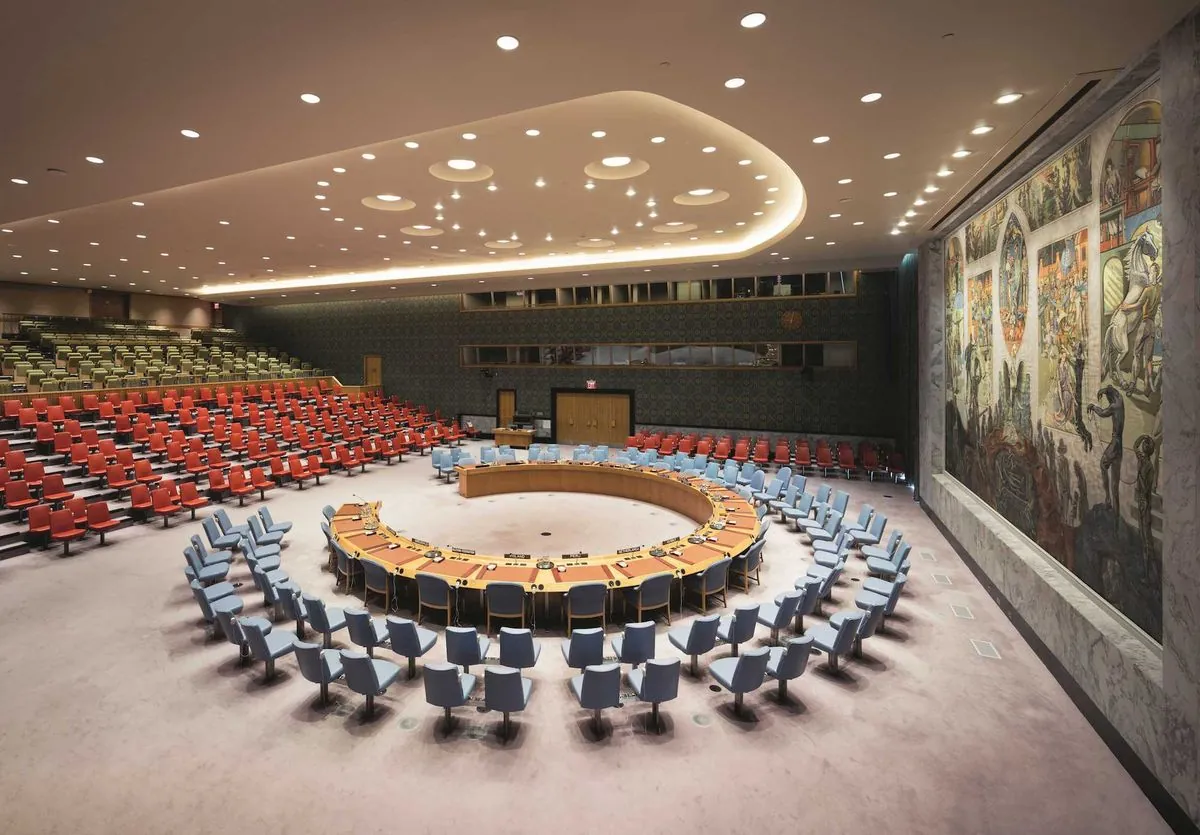UN Faces Global Divisions Amid Calls for Reform and Renewed Relevance
World leaders gather at UN amid challenges from conflicts in Ukraine and Gaza. Divisions strain diplomacy, impacting climate and development goals. Calls for Security Council reform grow as UN seeks to maintain relevance.

As world leaders convene in New York for the United Nations General Assembly's high-level week, the international body grapples with significant challenges. The past year has seen the UN facing bitter divisions over conflicts in Europe and the Middle East, raising questions about its effectiveness in maintaining global peace and security.
The current state of disunity has far-reaching consequences, impacting cooperation on critical issues such as climate change and the Sustainable Development Goals. This situation has prompted discussions about the UN's ability to address global challenges effectively.
Richard Gowan, UN director at the International Crisis Group, provides insights into the organization's current state. While acknowledging the energy surrounding the leaders' gathering, Gowan notes a profound sense of disquiet about the UN's direction. The period since Russia's invasion of Ukraine has been particularly challenging for UN diplomacy, with the October 7, 2023 events in Israel and subsequent Gaza conflict further splintering the organization.

Historically, the UN has faced significant challenges before. During the Cold War, there were periods of paralysis in the Security Council. In 1959, for instance, the Council passed only one resolution and didn't meet for over three months. Despite current difficulties, the Security Council continues to meet regularly and oversee peacekeeping operations in various regions.
The Israel-Gaza conflict has had a significant impact on UN dynamics. The majority of UN members called for an early end to hostilities, while the United States initially used its veto to block cease-fire calls in the Security Council. This stance strained US relations with other member states, although there has been a slight easing of tensions since the US tabled its own cease-fire proposal in June 2024.
António Guterres, the UN Secretary-General, has faced a challenging year, consistently calling for a cease-fire and criticizing Israel's actions. However, his role in mediating the conflict has been limited, leading to frustration within the diplomatic community about the UN's perceived sidelined position.
The Russia-Ukraine conflict has also significantly impacted UN dynamics. Initially, there was widespread support for Ukraine among UN members. However, as time passed, many non-Western countries began questioning the effectiveness of repeated resolutions and debates on the issue.
"The United States remains committed to working with our partners at the UN to address global challenges and promote peace and security."
The US role at the UN has evolved over the past year. While the Biden administration initially restored goodwill by rejoining frameworks like the Paris Climate Agreement and the Human Rights Council, its stance on the Gaza conflict has strained relationships. Despite these challenges, many UN diplomats still prefer the current US administration to potential alternatives.
China's growing influence at the UN has become a concern for US officials. Unlike Russia's aggressive approach, China tends to be more cautious in its UN diplomacy, avoiding frequent use of its veto power. This nuanced approach allows for some diplomatic engagement, even as competition between the US and China intensifies.
The UN's ability to address conflicts not directly involving major powers, such as the situation in Sudan, has also been affected by broader geopolitical tensions. Efforts to prioritize a cease-fire in Sudan have been complicated by the potential for further escalation in Lebanon and the Middle East.
Discussions about Security Council reform have gained momentum, with nearly half of the world leaders at the last General Assembly calling for changes. While there's general agreement on the need for reform, the specifics remain contentious. The US has expressed support for giving Africa two permanent seats on the Council, albeit without veto power.
Despite these challenges, the UN continues to play a crucial role in various areas. Its technical agencies, such as the International Telecommunication Union and the Universal Postal Union, are essential for everyday international cooperation. Additionally, UN humanitarian agencies like the World Food Programme and UNHCR provide critical support in conflict zones and areas affected by climate change.
As the UN navigates these complex issues, its ability to adapt and respond to global challenges will be crucial in maintaining its relevance and effectiveness on the world stage.


































